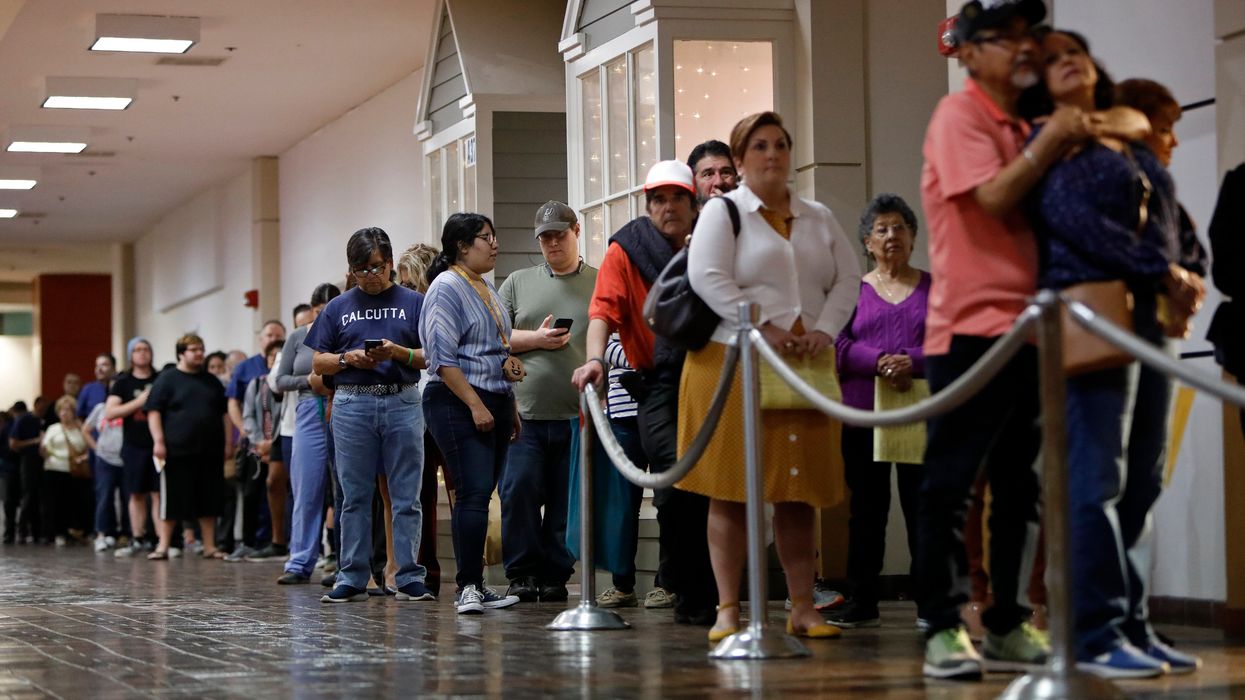A federal appeals court has joined the Texas Supreme Court in deciding that fear of exposure to the coronavirus is not an acceptable reason to vote by mail in the second most-populous state.
The back-to-back decisions, by the 5th Circuit Court of Appeals on Thursday and the state's highest court a week ago, end the possibility for Texans to legally cite a lack of immunity to the virus as a "disability" excuse in requesting an absentee ballot — at least for the July primary runoffs.
There is still a chance the U.S. Supreme Court will step in before the presidential election, when recent polling suggests the state could be genuinely competitive for the first time in four decades. It's also the case that vote-by-mail applications are on an honor system and people should be trusted to assess their own health, the state's top court has made clear.
The fight over making absentee balloting easier in Texas is highly significant to both voting rights groups and the Democrats.
Only 16 states require a precise excuse to use the system, and Texas is among just a handful that have not voluntarily relaxed those rules at least for primaries during the public health crisis. The Republicans who run the state assert widespread fraud would result. There's no solid evidence for the claim, and democracy reform groups see voter suppression as the real motive.
Only 7 percent used absentee ballots in 2018, when they were used by 25 percent of voters nationwide, and Democrats came within a whisker of winning a statewide race (Beto O'Rourke's bid for the Senate) for the first time in a quarter-century. The party is banking on a huge turnout in the cities and suburbs, where the fear of Covid-19 is greatest but the Latino and white-collar professional voting blocs have grown fast, to deliver the state's 38 electoral votes to Joe Biden.
But three judges on the 5th Circuit agreed Thursday to block a trial judge's order last month allowing all 16.2 million registered Texans to vote by mail during the pandemic.
Texans who are older than 65, away from home on election day or in jail may vote absentee — along with those who have a "sickness or physical condition," state law says, that prevents them from appearing at a polling place without the risk of "injuring the voter's health."
Last week the state Supreme Court ruled without dissent that, while lack of immunity alone does not meet that standard, it is up to voters to assess their own health and should not be challenged by county election administrators if they decide they meet the definition of disability.
GOP Attorney General Ken Paxton then pursued his parallel case in federal court, arguing that a late switch of the rules would cause confusion and open up the voting process to abuse — and was the state's decision to make, in any case. The 5th Circuit panel agreed and cited the U.S. Supreme Court's precedent that lower federal courts should "ordinarily not alter the election rules on the eve of an election."
The opinion was by Judge Jerry Smith, an appointee of President Ronald Reagan. He was joined by James Ho, an appointee of President Trump, and Gregg J. Costa, an appointee of President Barack Obama.
Paxton hailed their decisions as protecting a system designed "to aid those with an actual disability or illness." He did not explain why he supports the laws's elimination of excuse requirements for everyone 65 and older.
"The Constitution prohibits divvying up our rights by our age, gender, or race — and the 5th Circuit decision of today would allow voters of a certain age different voting rights than the rest of us," chairman Gilberto Hinojosa of the Texas Democratic Party, the plaintiff in the case, said in a statement vowing an appeal.
The last Republican to lose Texas was President Gerald Ford in 1976. But a Quinnipiac poll this week showed Trump, who carried the state by 9 points in 2016, in a statistical tie with Biden — and 6 in 10 voters supporting the availability of mail-in voting for everyone during the pandemic.
Four of the state Supreme Court justices who ruled against that idea are seeking re-election this fall.
July 2 is the last day to apply to vote absentee in runoffs 12 days later.




















Trump & Hegseth gave Mark Kelly a huge 2028 gift